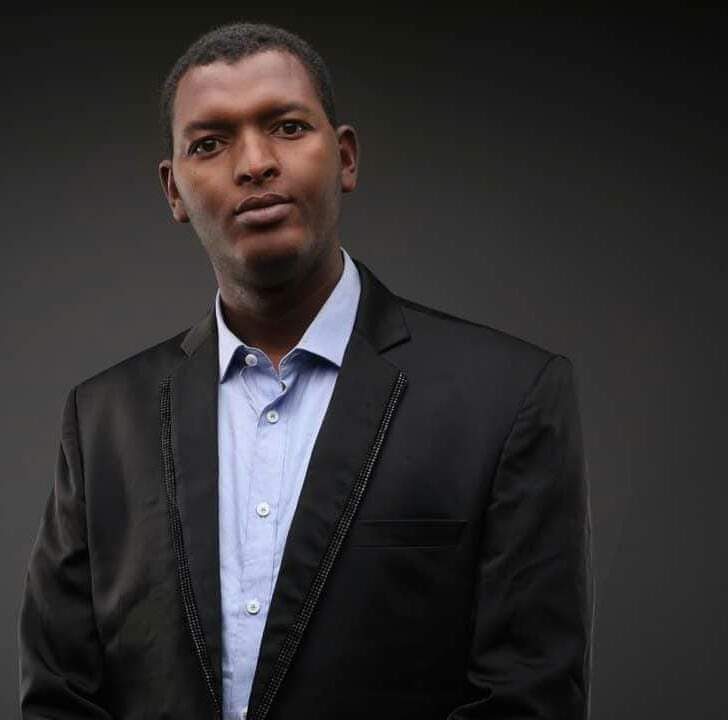في ظل جائحة كورونا، استطاعت منصات التواصل الاجتماعي تغيير بروتوكول العمل الصحفي على نمط سريع ومستحدث، شارك في تقريب المسافات بين مؤسسات الإعلام من جهة والجمهور من جهة أخرى، مما جعل الأخبار قريبة من الجمهور وسهلة التداول.
تساؤلات كثيرة طرحت بشأن دور الإعلام الوطني في التشاد خلال الأزمة الحالية التي اجتاحت دول العالم، باعتبار أن الوسائل الرسمية تشكل واجهة إعلامية مهمة عكف الجمهور على متابعتها لسنوات عديدة. ولكن، هنا يبرز سؤال أهم: كيف استطاعت مواقع التواصل الاستحواذ على الإعلام الوطني في ظل الأوضاع الحالية؟
مواكبة منصات التواصل الاجتماعي لأحداث كورونا لم تكن وليدة الصدفة في عصر الانفجارات التقنية، إذ أصبحت هذه المنصات متاحة للجميع ووسيلة فاعلة قادرة على كسر جدار الصمت، والتأثير في الرأي العام، وتوجيه الأحداث بشكل جذري، بل تعاظم دورها لدرجة أنها باتت قادرة على الإطاحة بالقادة السياسيين.
بطبيعة الحال، لم تخل تغطية وسائل الإعلام الوطنية من أخبار الجائحة، إلا أنها أخذت زاوية مغايرة، حيث ركزت على إظهار الإنجازات مقابل طمس الإخفاقات، خلافا لما قامت به منصات التواصل الاجتماعي في الكشف عما يدور خلف الأسوار.
منذ الوهلة الأولى للجائحة في البلاد، خرجت منصات التواصل بسيل عارم من الأخبار والمقاطع عن فيروس كورونا، ركزت بشكل عام على التوعية بخطورة الوباء، وضرورة الالتزام بالتدابير الاحترازية، في حين ركز الإعلام الرسمي على أخبار الهبات والمصالح السياسية دون غيرها.
قبل عقود من الزمان، لم تعرف البلاد سوى الإعلام التابع للدولة الذي تمارس عليه الرقابة، أما اليوم فقد عرفت وسائل التواصل الاجتماعي طفرة نمّت وعي التشاديين الذين أصبحوا اليوم مدركين لحقوقهم وواجباتهم نتيجة هذه المنصات التي حلت محل الإعلام الرسمي، وباتت مصدرا أوليا لجمهور عريض من المواطنين الذين كانوا في وقت قريب ينتظرون أخبار الساعة الثانية والسادسة من إعلام الدولة، الأمر الذي أصبح متاحا في كل وقت من خلال متابعة الصفحات الاجتماعية التابعة للمواقع الإخبارية الإلكترونية، والنشطاء الإعلاميين.
يقول الناشط الإعلامي عبد الرحمن يحيى صالح لمجلة "الصحافة": "هناك تأثير كبير للإعلام الجديد الذي يديره الشباب عبر منصات التواصل الاجتماعي على الحكومة والرأي العام الوطني في تشاد.. هذا التأثير بدا واضحا مع أحداث زهورة (الفتاة التشادية التي اغتصبت جماعيا عام 2016)، مرورا بالاحتجاجات الاجتماعية التي تتابعت لاحقا. وبرأيي فإن العام 2020 يعتبر ذروة التأثير مقارنة مع الأعوام الماضية".
ويضيف صالح أنه "بالرغم من أن النشطاء أحيانا يعتمدون على الصفحات الحكومية في تلقي الأخبار الرسمية، فإنهم أكثر تأثيرا من الإعلام الرسمي، وذلك لقدرتهم على معالجة المادة الإخبارية بقدر من الحرية، خلافا لوسائل الإعلام الحكومية التي تقيدها السياسات التحريرية للمؤسسات العامة".
كورونا في مواجهة الصحافة
في دول عدة توعدت السلطات مروجي المعلومات المضللة والأخبار الملفقة على شبكات التواصل الاجتماعي بملاحقتهم قانونيا، وفي تشاد استغلت السلطات هذا الأمر على نحو جيد لاستعادة سنوات التنكيل بالصحفيين، حيث يستمر مسلسل الحبس والاعتقالات التعسفية التي أصبحت عادة روتينية لم يسلم منها الصحفي التشادي حتى في عصر الجائحة، ولا يمر يوم دون تسجيل حالات اعتداء وسوء معاملة للصحفيين أثناء مزاولة مهنتهم.
ولم يتوقف الأمر عند هذا الحد، بل في 26 مارس/آذار الماضي، تعرض فريق من التلفزيون الوطني للتوقيف والاعتداء من رجال الشرطة أثناء قيامهم بجولة للتأكد من مدى احترام المواطنين للتدابير الاحترازية.
وفي 7 أبريل/نيسان الماضي، تم القبض على مدير نشر صحيفة "تشاد كوم" الإلكترونية أثناء تغطيته الأوضاع في أحد شوارع العاصمة، وتعرض للضرب والتعذيب مع مسح شامل لبيانات هاتفه وحاسوبه. كما اقتيد صحفيون آخرون للتحقيق على مدى ساعات طويلة، وأوقف آخرون باستغلال أسطورة "الأخبار المزيفة".
وفي حديثه لمجلة "الصحافة"، يقول رئيس تحرير جريدة "الخبر" محمد أبكر الذي تم احتجازه لمدة يومين في مقر الشرطة القضائية بسبب ما يسمى التزييف: "تلقيت اتصالا هاتفيا من قبل الشرطة القضائية لغرض دعوى قضائية على خلفية بيان حكومي مزيف انتشر على مواقع التواصل الاجتماعي".
ويضيف: "ذهبت بالفعل، وعند وصولي هناك تفاجأت بوجود اثنين من أصدقائي تم استدعاؤهما، أخبراني بسبب الدعوى، وعندها تبين لي أنهما نشرا البيان، وتم استجوابي من قبل أفراد الشرطة بتهمة إرسال البيان لهما، وأكدتُ للشرطة أنني لم أرسله لأحد عبر الواتساب، غير أني اتصلت فقط بصديقي لغرض التأكد من صحة المعلومات، فأجابني بأنه في الشارع، وبعد برهة من الزمن عاد إلي وأخبرني بأن البيان مزيف، فقد تم نشره على صفحة وزارة الإعلام وتم سحبه لاحقا. وبعد مصادرة هاتفي واحتجازي لمدة يومين في مكتب الشرطة القضائية بعد التحقق من مراسلاتي ومنشوراتي على التواصل الاجتماعي، أطلقوا سراحي".
بدوره، استهجن رئيس اتحاد الصحفيين التشاديين عباس محمود المعاملات السيئة التي يتعرض لها الصحفيون، وقال في حديث لمجلة "الصحافة" إنه "بالرغم من تصريح وزارة الإعلام ولجنة إدارة الأزمة التي تطلب من مهنيي الإعلام إبقاء برامجهم المعتادة بغية دعم الحكومة في خطتها لاحتواء الأزمة في بداية مارس/آذار وأبريل/نيسان، كانت هناك صعوبات كبيرة واجهت الصحفيين، تمثلت في الاعتقال والحبس وأحيانا سوء المعاملة".
الخلاصة أن هؤلاء الصحفيين صاروا يمتلكون منصة جديدة هي وسائل التواصل الاجتماعي، لذلك يتعرضون للكثير من المتاعب.
التحول الرقمي في عصر كورونا
بمجرد انتشار جائحة كورونا تغير بروتوكول العمل في المؤسسات الإعلامية، وأصبح الإقبال على الصحف الورقية والإعلام المرئي والمسموع منحسرا، واتجه العمل نحو الوسائط الرقمية، حيث وجدت هذه الوسائل نفسها عاجزة عن دفع أجور العاملين، في حين أنها ملزمة بدفع ضرائب الحكومة. ورغم قساوة الأزمة فإنها شكلت فرصة جيدة للتحرر من الأفكار التقليدية، وركوب موجة التحولات الرقمية.
عبد الباقي الطاهر الصحفي في وكالة الأنباء التشادية يؤكد في حديثه لمجلة "الصحافة" أن "وسائل التواصل الاجتماعي لعبت دورا مضادا في عملنا بالوكالة، من خلال السرعة التي تتمتع بها في نقل الأخبار، ولكن لا بد من الرجوع إلى المصادر الحقيقية للتأكد من مصداقية المعلومات".
ويضيف أنه "بسبب هذه الجائحة توقف الكثير من العاملين في الوكالة، فأنشأنا مجموعة التحرير لأول مرة على تطبيق الواتساب لتبادل الآراء والاقتراحات وإرسال الأخبار إلى الإدارة".
التحولات كثيرة في الإعلام التشادي، لكن أبرزها هو تسريع وتيرة التطور الرقمي، وكذلك قدرة الدولة على مقاومة هذا التحول لأنه ينافس سلطة إعلامها التقليدي القائم على التمجيد عبر اختلاق تهمة جديدة: نشر أخبار مزيفة.








































